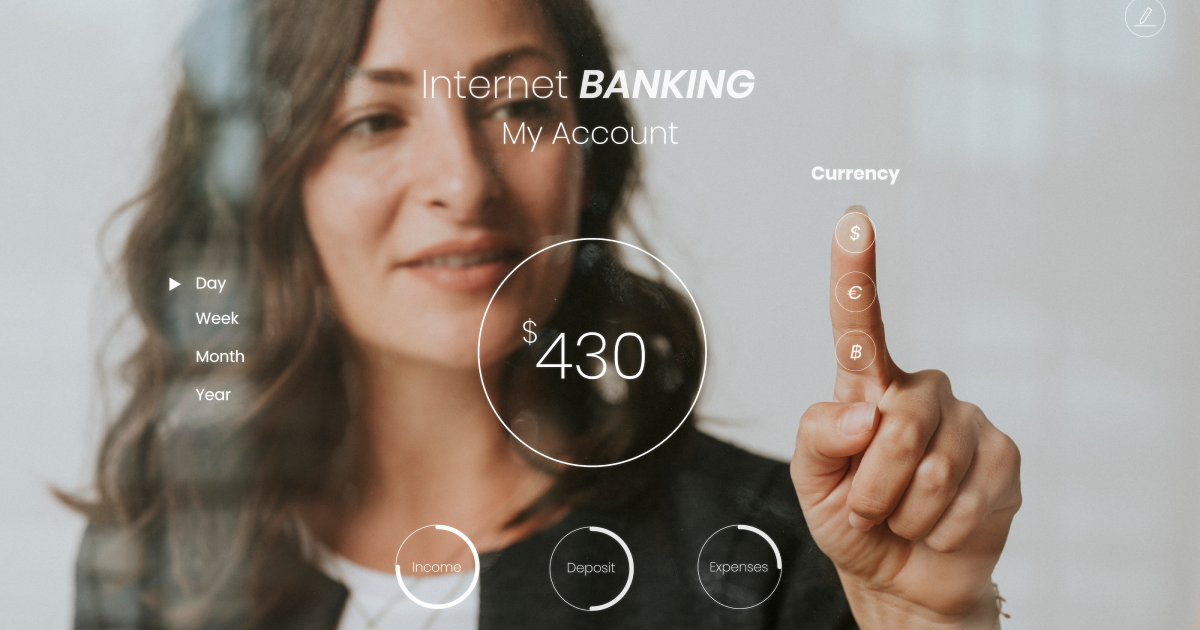
Understanding Open Banking
Open Banking is a concept that is transforming the payments industry and the way consumers and businesses interact with financial institutions. It refers to the practice of allowing third-party providers to access financial information from banks and other financial institutions through secure application programming interfaces (APIs). This data sharing enables new and innovative financial services to be developed, enhancing the overall banking experience for customers.
Open Banking is driven by the belief that consumers should have greater control over their financial data and be able to share it with trusted providers to receive more personalized and tailored services. This concept promotes competition and innovation by opening up opportunities for fintech startups and small businesses to create innovative products and services that were previously only available through traditional banking channels.
By embracing Open Banking, businesses can offer their customers a wider range of financial solutions, such as real-time payments, improved budgeting tools, and personalized recommendations. It also allows businesses to streamline their financial operations by integrating banking services directly into their own platforms, making transactions more efficient and seamless.
In summary, Open Banking is revolutionizing the financial industry and has numerous benefits for both consumers and businesses. It provides greater choice, convenience, and security in financial transactions, and opens up new opportunities for innovation and competition in the payments ecosystem. Embracing Open Banking can give businesses a competitive edge and provide consumers with a more customized and efficient banking experience.
In the journey of building a successful company, there are distinct stages that every organization goes through. These stages can be categorized as existence, survival, success/disengagement, and growth. Each stage is characterized by specific goals, gaps, and the need for appropriate support and guidance. Mentors, advisors, and industry experts can provide valuable insights and help address the specific gaps that arise at each stage. By recognizing and understanding the distinct stages of company growth, entrepreneurs can navigate the path to success more effectively.
Open Banking and Its Impact
Open Banking refers to the practice of sharing financial information between banks and third-party providers through secure APIs. Its impact is far-reaching, transforming the payments industry and offering new opportunities for innovation and competition. As a small business or startup, Open Banking allows you to access a wider range of financial solutions and services, such as real-time payments and improved budgeting tools. It enhances the overall banking experience for customers by providing more personalized and tailored services. For businesses in different industries, Open Banking enables seamless integration of banking services into their platforms, streamlining financial operations. This fosters efficiency and convenience, giving you a competitive edge in the market. Overall, Open Banking revolutionizes the way we interact with banks and opens up endless possibilities for growth and better customer experiences.
Benefits of Open Banking for Consumers and Businesses
Open Banking brings a multitude of benefits for both consumers and businesses. For consumers, it offers greater control and transparency over their financial data. They can easily access and share their banking information with trusted third-party providers, leading to more tailored financial products and services. This enables consumers to make more informed decisions and manage their finances more effectively. For example, budgeting apps can analyze transaction data to provide personalized saving tips.
For businesses, Open Banking opens up new opportunities for innovation and competition. It allows seamless integration of banking services into their platforms, streamlining financial operations and enhancing customer experience. Small businesses and startups can access a wider range of financial solutions, such as real-time payments and improved budgeting tools, enabling faster and more efficient business processes.
Overall, Open Banking empowers consumers and businesses with greater convenience, efficiency, and access to innovative financial services.
Open Banking Regulations
As a business owner, it is crucial to understand the regulations that govern Open Banking. These regulations are designed to ensure the security, privacy, and fair use of customer data. In the European Union, the Payment Services Directive 2 (PSD2) is a key regulation that mandates banks to open up their customer data to licensed third-party providers. This allows businesses to access financial data and initiate payments on behalf of customers with their consent. Additionally, regulations such as the General Data Protection Regulation (GDPR) ensure that customer data is protected and used responsibly. Adhering to these regulations is essential for businesses to build trust with their customers and ensure compliance in the rapidly evolving payments industry.
Key Regulations Governing Open Banking
When it comes to Open Banking, there are key regulations that businesses need to be aware of. One such regulation is the Payment Services Directive 2 (PSD2) in the European Union. This directive requires banks to open up their customer data to licensed third-party providers, allowing businesses to access financial data and initiate payments on behalf of customers with their consent. Another important regulation is the General Data Protection Regulation (GDPR), which ensures the protection and responsible use of customer data. These regulations aim to enhance security, privacy, and fair use of data in the payments industry. Adhering to these regulations is crucial for businesses to maintain compliance and build trust with their customers.
How Open Banking Is Changing the Financial Industry
Open Banking is revolutionizing the financial industry by enabling increased collaboration, competition, and innovation. It is breaking down the traditional barriers within the sector and empowering businesses of all sizes to offer more personalized and efficient financial services.
With Open Banking, businesses can securely access and analyze customer data from multiple sources, allowing for more accurate risk assessments and tailored financial solutions. This level of transparency and connectivity is creating new opportunities for startups and small businesses to enter the market and compete with established players.
Additionally, Open Banking is driving the development of new payment methods and technologies, such as mobile banking apps and digital wallets. These advancements are enhancing the overall customer experience and making payments more seamless and convenient.
The introduction of Open Banking is fueling a transformation in the financial industry, making it more inclusive, customer-centric, and technologically advanced.
Open Banking Security
When it comes to Open Banking, security is of utmost importance. The implementation of Open Banking introduces new challenges and risks in terms of data privacy and protection. As a financial industry professional, I understand the importance of ensuring that customer data is safeguarded and secure.
Open Banking security measures include strong authentication protocols, encryption of data transmissions, and secure storage of customer information. Additionally, regulatory bodies have established guidelines and standards to ensure the security of Open Banking systems.
To address potential security concerns, banks and financial institutions must prioritize robust cybersecurity frameworks, conduct regular security audits, and invest in advanced technologies like biometric authentication and real-time fraud detection.
By following these security protocols, Open Banking can bring forth a new era of convenient financial services without compromising the privacy and security of customer data.

Security measures in place for Open Banking
As an industry professional in Open Banking, I understand the critical need for robust security measures to protect customer data. When it comes to Open Banking, banks and financial institutions have implemented several security measures. Some of the key security measures in place include:
- Strong Authentication Protocols: Two-factor authentication and biometric authentication methods like fingerprint or facial recognition are used to ensure that only authorized individuals can access sensitive information.
- Encryption of Data: All data transmissions within the Open Banking ecosystem are encrypted to prevent unauthorized access and protect the privacy of customer information.
- Secure Storage: Customer data is securely stored in controlled environments, employing measures like encryption, access controls, and regular security audits to safeguard against data breaches.
- Real-Time Fraud Detection: Advanced technologies and algorithms are employed to detect and prevent fraudulent activities in real-time.
- Regulatory Compliance: Banks and financial institutions adhere to regulatory guidelines and standards to ensure the security of Open Banking systems.
By implementing these security measures, Open Banking strives to provide a secure and trustworthy environment for customers and businesses, helping to build trust and confidence in the Open Banking ecosystem.
Data Protection and Privacy Concerns
As an industry professional in Open Banking, I am well aware of the data protection and privacy concerns that arise with the sharing of financial information. While Open Banking offers many benefits, it also raises concerns about the security and privacy of customer data.
To address these concerns, Open Banking regulations include strict rules and guidelines regarding data protection and privacy. Financial institutions are required to implement robust security measures to protect customer data from unauthorized access or breaches. Additionally, customers have control over their data and must provide explicit consent for its sharing.
For small businesses, startups, and businesses in different industries, data protection and privacy are critical. They need to ensure that their financial information is safeguarded and shared securely, considering the reputation and trust of their customers. Implementing encryption, strong authentication protocols, and regular security audits can help mitigate data protection and privacy risks.
Overall, while Open Banking presents opportunities for innovation and convenience, it is crucial to prioritize data protection and privacy to build trust and confidence among consumers and businesses alike.
Open Banking APIs
Open Banking APIs play a crucial role in enabling the secure and seamless sharing of financial data between different parties. These APIs, or Application Programming Interfaces, allow businesses to access and integrate banking services and information into their own applications or systems.
By using Open Banking APIs, businesses can streamline their payment processes, enhance financial management capabilities, and offer personalized customer experiences. For example, a small business owner can use an Open Banking API to retrieve real-time transaction data from their bank and automatically reconcile it with their accounting software.
Additionally, Open Banking APIs are driving innovation in the payments industry. They enable the development of new payment solutions, such as third-party payment initiators that allow customers to make payments directly from their bank accounts without the need for a traditional payment card.
With the increasing adoption of Open Banking APIs, the future of banking is becoming more open, collaborative, and customer-centric. Businesses of all sizes and industries can leverage these APIs to create innovative solutions that enhance efficiency, convenience, and security in financial transactions.
Importance of Open Banking APIs
Open Banking APIs play a pivotal role in driving innovation and transforming the way businesses interact with financial institutions. These APIs act as a secure bridge, allowing businesses to access and integrate banking services and data into their own applications.
The importance of Open Banking APIs lies in their ability to streamline payment processes, improve financial management capabilities, and offer personalized customer experiences. With Open Banking APIs, businesses can automate transactions, retrieve real-time data for accurate financial reporting, and create customized solutions that cater to specific customer needs.
For small businesses, startups, and businesses in different industries, Open Banking APIs open up a world of possibilities. They provide opportunities to enhance efficiency, convenience, and security in financial transactions while facilitating the development of new payment solutions tailored to the unique needs of each business. The adoption of Open Banking APIs is paving the way for a more collaborative, customer-centric future of banking.
How APIs are shaping the future of banking
In my opinion, APIs are playing a pivotal role in shaping the future of banking. With their ability to securely connect businesses with financial institutions, APIs are revolutionizing the way transactions are initiated, processed, and managed. APIs enable seamless integration of banking services into various applications, offering unparalleled convenience and efficiency.
By leveraging APIs, businesses can automate payment processes, access real-time financial data, and create personalized customer experiences. For instance, small businesses can benefit from APIs by integrating payment processing capabilities directly into their websites or mobile applications, providing a seamless and user-friendly payment experience for their customers.
Furthermore, APIs enable businesses to build innovative financial solutions that cater to unique industry needs. For example, startups in the payments industry can leverage APIs to develop custom payment solutions that streamline transactions and enhance security. This not only improves operational efficiency but also helps businesses stay competitive in the evolving digital landscape.
In summary, APIs are not only transforming the way banking services are accessed and utilized but also fostering innovation and driving the future of financial technology. As the demand for seamless integrations and personalized experiences continues to grow, APIs will remain at the forefront of shaping the future of banking.

Open Banking Use Cases
As an entrepreneur in the payments industry, I have witnessed firsthand the transformative power of Open Banking in various business scenarios. Open Banking has opened up numerous opportunities for businesses to leverage financial data and create innovative solutions. Here are a few practical use cases that demonstrate the real-world impact of Open Banking:
- Personal Financial Management: With Open Banking, individuals can access their financial information from multiple accounts in a single platform, enabling them to track their expenses, create budgets, and make informed financial decisions.
- Third-Party Payment Initiation: Open Banking allows businesses to initiate payments on behalf of their customers directly from their bank accounts, eliminating the need for traditional payment methods and enabling faster and more secure transactions.
- Customized Financial Products: Banks and fintech startups can utilize Open Banking to create personalized financial products tailored to the specific needs of their customers. By integrating various financial data sources, businesses can offer customized loans, insurance, and investment plans.
- Account Aggregation: Open Banking APIs enable businesses to aggregate account information from different banks and financial institutions into a single platform. This provides users with a holistic view of their finances and allows them to manage their accounts more efficiently.
- Fraud Detection and Prevention: By accessing real-time transaction data from multiple sources, businesses can utilize Open Banking to enhance fraud detection and prevention measures. This can help identify suspicious activities and protect customers from financial fraud.
- Seamless Cross-Border Payments: Open Banking facilitates seamless and cost-effective cross-border payments by enabling businesses to access international bank accounts and transfer funds in real-time. This opens up new opportunities for global expansion and international trade.
These use cases highlight the versatility of Open Banking and its potential to transform different industries. By leveraging the power of financial data and APIs, businesses can create innovative solutions, improve customer experiences, and stay ahead in today’s rapidly evolving digital landscape.
Practical Applications of Open Banking
Open Banking has revolutionized the way businesses and consumers interact with financial services. Its practical applications are numerous and diverse. Here are a few examples of how Open Banking is being applied in real-world scenarios:
- Third-Party Payment Initiation: Startups and small businesses can use Open Banking APIs to provide customers with a seamless payment experience. This enables them to initiate payments directly from their customers’ bank accounts, eliminating the need for traditional payment methods and reducing transaction fees.
- Personal Financial Management: Open Banking allows individuals to consolidate their financial information from different accounts into a single platform. This makes it easier for them to manage their finances, track expenses, and create budgets.
- Customized Financial Products: Businesses can leverage Open Banking to develop personalized financial products and services. By accessing customer banking data, they can tailor loans, insurance plans, and investments to meet their specific needs.
- Account Aggregation: Open Banking APIs enable businesses to aggregate account information from multiple banks and financial institutions. This provides customers with a holistic view of their finances, simplifying money management and improving decision-making.
These practical applications of Open Banking are just the tip of the iceberg. The potential for innovation and creativity in leveraging financial data is vast. By harnessing the power of Open Banking, businesses can offer unique solutions and enhance the overall customer experience.
Examples of Successful Open Banking Implementations
In recent years, we have seen numerous successful implementations of Open Banking across various industries. These examples showcase the transformative power of Open Banking in enhancing customer experiences and driving innovation. Here are a few notable examples:
- TransferWise: This fintech startup allows customers to send money abroad at a fraction of the cost charged by traditional banks. By leveraging Open Banking APIs, TransferWise can securely access customer bank accounts, enabling fast and low-cost transfers.
- OakNorth: This digital bank uses Open Banking to access customer data and provide tailored lending solutions to small and medium-sized businesses. By analyzing financial data in real-time, OakNorth can offer faster loan approvals and better interest rates.
- Moneyhub: This personal financial management platform uses Open Banking to aggregate and analyze financial data from various accounts and providers. It enables users to gain a holistic view of their finances, track spending, and set financial goals.
These examples demonstrate how Open Banking can revolutionize the payments industry and unlock new opportunities for businesses. By embracing Open Banking, companies can deliver innovative solutions that meet customer needs and stay ahead of the competition.
Final Thoughts
In conclusion, Open Banking has emerged as a game-changer in the financial industry, revolutionizing the way consumers and businesses interact with financial services. Its impact can be seen in the enhanced customer experiences, increased competition, and innovative solutions it brings to the table. Open Banking regulations have paved the way for greater transparency, empowering individuals and businesses to have more control over their financial data. While data protection and privacy concerns remain, the security measures in place for Open Banking help alleviate these concerns. The use of APIs has been instrumental in driving the adoption and success of Open Banking, enabling seamless integration of services and fostering collaboration between banks and fintech companies. The future of Open Banking looks promising, with opportunities for small businesses, startups, and businesses across different industries to leverage this transformative technology for growth and innovation.
The Future of Open Banking
As I conclude this deep dive into Open Banking, it is clear that the future of this transformative technology is incredibly promising. Open Banking has already made a significant impact on the financial industry, revolutionizing the way consumers and businesses interact with financial services. Moving forward, Open Banking will continue to shape the payments industry, providing new opportunities for innovation and growth.
In the future, we can expect to see even greater collaboration between traditional banks and fintech companies, as they leverage Open Banking APIs to create innovative solutions for their customers. Small businesses, startups, and businesses in various industries will be able to take advantage of Open Banking to streamline their payments processes, access new markets, and offer personalized financial services to their customers. With increased competition and transparency, consumers will have more choice and control over their financial data, leading to better experiences and tailored solutions.
Open Banking is set to be a driving force in the digital transformation of the financial industry, and those who embrace it will be at the forefront of innovation and success.
Challenges and Opportunities Ahead
As we look towards the future of Open Banking, there are both challenges and opportunities that lie ahead. On the challenge front, one of the key concerns is ensuring the security and privacy of customer data. With increased access to financial information through Open Banking APIs, it becomes crucial to have robust security measures in place to prevent data breaches.
Another challenge is the need for standardization and interoperability among different banks and financial institutions. Without consistent standards, it becomes difficult for businesses and consumers to seamlessly navigate and utilize Open Banking services.
However, with these challenges also come tremendous opportunities. Open Banking opens up new avenues for innovation and competition in the payments industry. Small businesses, startups, and businesses in different industries can leverage Open Banking APIs to create tailored financial solutions for their customers. This can lead to improved customer experiences, increased efficiency, and new revenue streams.
Moreover, Open Banking also presents opportunities for collaboration between traditional banks and fintech companies. By embracing Open Banking, these entities can combine their expertise and resources to deliver cutting-edge financial services to their customers.
Overall, while there are challenges to overcome, the opportunities presented by Open Banking are vast. With the right regulations, security measures, and industry collaboration, Open Banking has the potential to transform the way we interact with financial services and propel the industry towards a more efficient and customer-centric future.
Ready to harness the power of Open Banking for your business? Collaborate with Maranda to take the first step towards financial innovation and growth today!
On Cansulta, we believe no business leader should have to face any challenge alone. Our online platform lets you find and collaborate with pre-vetted consultants at a fraction of the cost of traditional firms.
Not sure what expertise you need?
Our Concierge is happy to discuss your needs and match you with the best-suited consultant. On Cansulta, you can browse consultants by expertise and connect with vetted professionals in Intro sessions for FREE.
